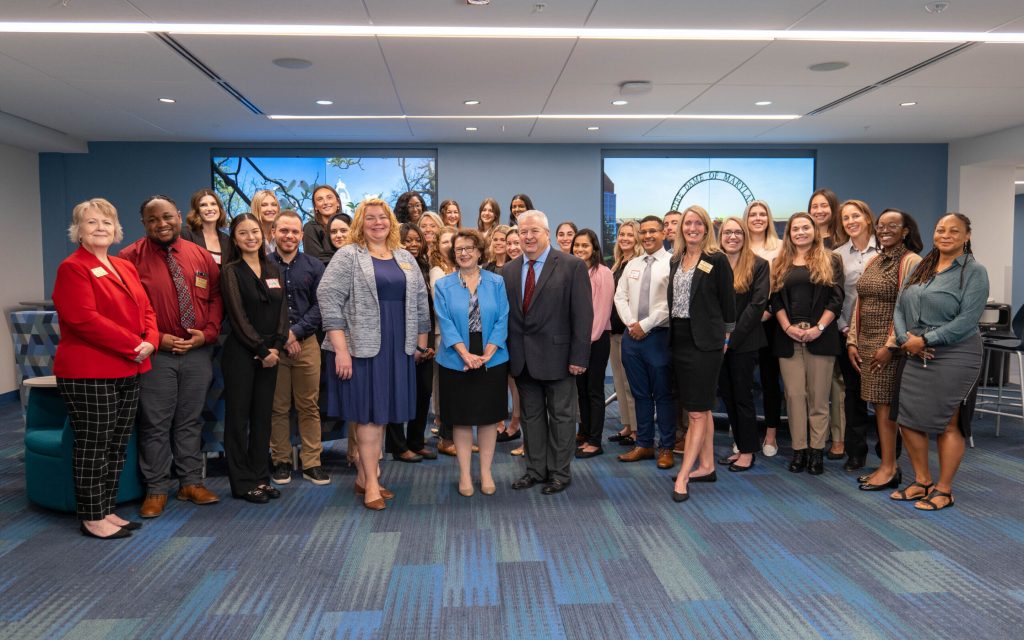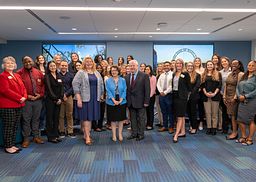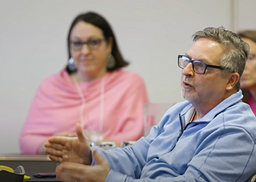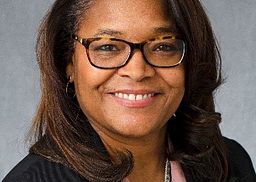Lessons Learned: Tips on Starting a New PA Program
Starting a new PA education program can be a challenge for anyone but one Maryland educator has just done it for the third time across three states.
Jack A. Goble, Jr., DMSc, MHA, PA-C, is now the chair and program director for the Physician Assistant Studies Program at Notre Dame of Maryland University. But he’s also founded programs in Tennessee and Pennsylvania, as well as helping another program in Maryland retain its accreditation.

Goble shared some of the elements that lead to success when initializing a new PA program.
“I think it’s like just about anything else in life: It’s experience based. For myself, as I reflect back on it, my experience in health care operations leadership was an essential component.” he said.
Goble said he realized that having familiarity with business processes was a key element of successfully launching education programs. In addition, he added that his experience as a Malcolm Baldrige National Quality Award program examiner (2007) proved even more essential.
“That’s what really helped me truly understand performance improvement processes. I was an evaluator one summer at an academic institution and it really opened up my eyes,” he said.
With healthcare ever-changing, Goble said educators needed to be flexible.
“You really have to be adaptive. You have to be willing to change and willing to also be evaluated yourself. You have to be willing to take that evaluation information and look at it in a critical fashion and say, ‘Here are two or three things that several assessors are saying’ or ‘Students are giving me feedback after the course.’ It can be like, ‘I don’t see that myself. I don’t see that in myself or as part of my approach, but they do, so I need to take that very seriously and look at it.’ You have to ask other people, maybe the faculty, ‘What can I possibly change in my leadership to improve, or to deliver the curriculum in a better fashion,’” he said.
Goble said he conducts an evaluation process, receiving anonymous feedback, for his role as a program director.
“I want them to assess my ability to help them grow in their roles and positions and into the skillsets that they need to develop,” he said.
Goble acknowledged that he hasn’t perfected every aspect of leadership but said he in continually seeking improvement.
Goble has been a PA since 1987 after he graduated from Essex Community College in Maryland. He describes himself as being a “PA who was at the end of the early adopters of PA-dom.” Essex Community College hosted the only PA program in Maryland, at the time.
After graduation, Goble worked at a busy emergency medicine department at Franklin Square Hospital in Baltimore County for more than 15 years.
“The way I gather information, the way I process it, the way I analyze it, segregate it sometimes, and then make a decision, is the same process I used and learned over those 16 years at the department of emergency medicine, so it really is part and parcel of who I am,” he said.
While Goble said that time at the hospital served his career well, after a decade and a half, he wanted to see what else he could achieve.
“I went back to school to pursue a master’s in health care administration. Completing that degree actually shifted my career to health care operations leadership. … That experience really helped me better understand performance improvement initiatives and the real value of them,” he said.
Goble said this phase of his career lasted more than 10 years. He said the experience allowed him to move into assessment.
“When I got into PA education, especially dealing with accreditation, a lot of the issues really have to do with performance improvement in different areas, so I think that became just a natural segue way for me in my career,” he said.
During his tenure at Towson University, the faculty and staff worked as a team to successfully renew the PA program accreditation.
“Always as a team. No individual can do this alone,” he said.
Collectively, they took the Baldrige approach, emphasizing performance improvement within the assessments that needed to happen. Goble said they then made substantive changes to move the program forward.
Goble said the time at Towson had also allowed him to work with Robert Solomon, currently a Professor Emeritus of Physician Assistant Studies at Towson. Solomon had taught Goble when Goble was in the program. Goble said Solomon had become a mentor who helped to teach him “the ropes, the basics, and the structure” of academic institutions especially regarding PA education.
“After that (successful accreditation process,) I actually said, ‘You know, I may like to start a new PA program.’ The opportunity arose at Misericordia University,” he said.
At Misericordia, which is in Northeast Pennsylvania, Goble worked with faculty members that the university had already hired in order to create their new PA program about six years ago. The team at Misericordia was very successful throughout the entire accreditation process.
While Goble said he wasn’t really making plans to leave Misericordia, he was recommended by a colleague, to help start a PA program in the Nashville area. That opportunity led to additional growth, both professionally and personally. Goble now has multiple colleagues, whom he is proud to call friends, in the Nashville area.
Now back in the area where he grew up and still has family, Goble is the founding program director for the PA program at Notre Dame of Maryland University.
“We put in a lot of hard work as a team and we were blessed to get the accreditation -provisional status that we needed to start this program,” he said.
Goble repeatedly made clear that creating a successful PA program is a team effort.
He said a leader will need to determine the positions the program is lacking to identify the training and specialties that need to be brought on. Finding the right members of the staff also means identifying the right skillsets.
As an example, Goble talked about the need at Notre Dame of Maryland to bring in educators with prior leadership skills.
“The didactic year has its own leader. Here, we’re calling that position the academic director. For the clinical experience year, when students go out into the field for practical, real-world experience, that needs a different leader (clinical director) and I believe that leader needs to have a little different skillset than the academic leader,” he said.
The academic director at Notre Dame of Maryland has several years of full-time PA education experience. But Goble said he wanted one of the primary skillsets for the clinical director to be relationship management.
Goble said he, and the Notre Dame of Maryland University, are very fortunate to have two high-quality faculty members who have taken those roles within the new program. The program is also fortunate to have a third principal faculty member, who is well respected in the classroom.
The first class of students began meeting on October 2, 2023
After more than a decade as a PA educator, Goble said the “variety of challenges and opportunities, both the personal and professional side” has kept his work fresh and interesting. He also said he feels “really good” that two of his colleagues from Tennessee are now program directors themselves.
“Diversity and variety of opportunities, sometime for advancement, but also the variety of individuals that I can work with and, probably the thing, as I describe it, that pulls me out of bed in the morning rather than pushes me out of bed is working with individuals who not only want to teach students but have a desire to advance as well because that’s what I get most of my personal, work-related satisfaction from,” he said.




